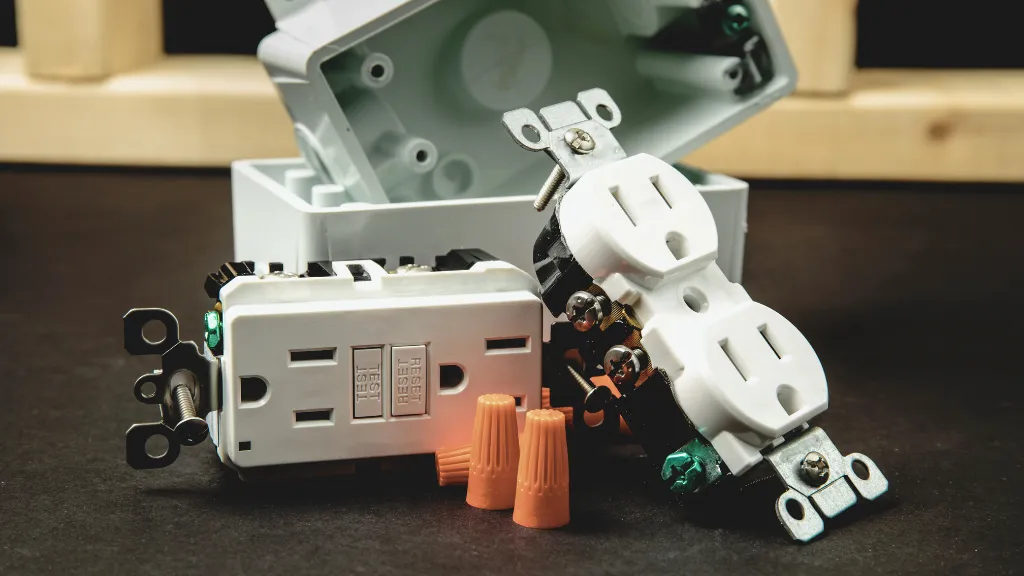Ground Fault vs Short Circuit: Understanding the Key Differences
Electrical issues in your home or workplace can be perplexing and dangerous. Two common types of electrical problems are ground faults and short circuits.
While they may seem similar at first glance, they have distinct characteristics and risks. Understanding the differences between a ground fault and a short circuit can help you identify and address electrical problems more effectively.
What is a Ground Fault?
Definition and Causes
A ground fault occurs when the electrical current strays outside its intended path and instead flows directly to the ground or touches a grounded part of the system, like the metal box of an outlet.
This can happen due to damaged wires, moisture, or faulty appliances. Ground faults are particularly hazardous in areas with high moisture levels, such as bathrooms or kitchens, because water conducts electricity, increasing the risk of shock.
Risks and Prevention
Ground faults pose a serious risk of electric shock and fire. They can happen when electrical equipment is damaged or defective, allowing current to escape the system.
Ground Fault Circuit Interrupters (GFCIs) are used to prevent ground faults. GFCIs are designed to shut off the electrical circuit when they detect an imbalance between incoming and outgoing current, thereby protecting against electric shock.

What is a Short Circuit?
Definition and Causes
A short circuit occurs when electricity takes a shorter, unintended path between two conductive materials. This can happen when wires are frayed or the insulation breaks down, allowing live wires to come into contact with a neutral or ground wire.
Short circuits can also occur when appliances or wiring are damaged or overloaded.
Risks and Prevention
Short circuits can lead to high levels of current flowing through the circuit, generating excessive heat and potentially causing fires. Preventing short circuits involves ensuring that wiring and electrical devices are properly installed and maintained.
Overcurrent protective devices, such as fuses and circuit breakers, are essential in stopping excessive current and minimizing fire risk.
Key Differences Between Ground Faults and Short Circuits
Understanding the fundamental differences between ground faults and short circuits is essential for diagnosing electrical issues and ensuring the safety of your home or workplace. Although both are common electrical problems, they have different causes, effects, and safety solutions.
Path of Electrical Current
The primary difference between a ground fault and a short circuit is the path taken by the electrical current:
- Ground Fault: In a ground fault, the electrical current deviates from its intended path and finds a route to the ground. Typically, this occurs when there is a breach in the insulation of wires or when electrical systems are exposed to water or moisture. The current may flow through unintended materials or even a person, which can lead to serious injuries or fatalities due to electric shock.
- Short Circuit: A short circuit happens when a live (hot) wire directly contacts a neutral or another live wire. This creates a new, shorter path for electricity to flow, bypassing the rest of the circuit. This can occur due to faulty installation, damaged wires, or when insulation wears off, allowing wires to touch.
Causes and Common Scenarios
- Ground Fault Causes: Wet conditions, damaged insulation, improper wiring, or defective electrical appliances can lead to ground faults. These are more common in moisture-prone areas, such as bathrooms, kitchens, and outdoor spaces.
- Short Circuit Causes: Overheating, rodent damage, aging electrical components, and DIY wiring mistakes often result in short circuits. They are not necessarily linked to wet conditions and can occur anywhere in the electrical system.
Safety Devices
The safety devices used to prevent and address these issues also differ:
- Ground Fault Protection: Ground Fault Circuit Interrupters (GFCIs) are designed to protect against ground faults. They monitor the balance of electrical current and quickly cut off power when they detect a ground fault, significantly reducing the risk of electric shock.
- Short Circuit Protection: Circuit breakers and fuses protect against short circuits. They detect the excessive current caused by a short circuit and disconnect the electrical flow, preventing overheating and potential fires.
Indicators and Symptoms
- Ground Fault Indicators: Frequent tripping of GFCIs, electric shocks when touching electrical devices, or buzzing sounds from outlets are common indicators of ground faults.
- Short Circuit Indicators: If a circuit breaker trips immediately after resetting, there’s a strong chance of a short circuit. Other signs include a burnt smell from an outlet or appliance, visible burn marks on wires, or sparks when plugging in a device.
Risks and Consequences
- Ground Fault Risks: The most significant risk of a ground fault is electric shock, which can be fatal if the current passes through a person. There is also a risk of electrical fires if the ground fault causes the overheating of surrounding materials.
- Short Circuit Risks: Short circuits primarily pose a fire risk due to the high heat generated by the excessive current. They can also damage appliances and electrical systems, leading to costly repairs.
Can Ground Faults and Short Circuits Affect Each Other?
Yes, ground faults and short circuits can influence each other under certain circumstances, although they are distinct phenomena. For instance, a ground fault can sometimes lead to a short circuit and vice versa, depending on the electrical and environmental conditions.
A ground fault, which involves electricity escaping the intended path and reaching the ground or a grounded component, can create conditions ripe for a short circuit. If, for example, a ground fault causes electrical components to degrade or moisture accumulates, this could lead to insulation breakdown. As a result, live wires might come into contact with neutral or other live wires, triggering a short circuit.
Conversely, a short circuit can exacerbate conditions leading to a ground fault, especially if the short causes overheating or damage to the insulation of wires. This damage can expose live wires, making it easier for electricity to find an unintended path to the ground.
While they can influence each other, the preventive measures differ from GFCIs for ground faults and circuit breakers or fuses for short circuits. Understanding how these electrical issues can interrelate underscores the importance of comprehensive electrical safety measures and regular maintenance.
Why do GFCIs often seem to trip more frequently in bathrooms and kitchens, and how does this relate to ground faults?
GFCIs, or Ground Fault Circuit Interrupters, are more prone to tripping in bathrooms and kitchens primarily due to the higher moisture levels in these areas. Moisture is a conductor of electricity, and when present, it can create pathways for electrical current to leak from the intended circuit directly to the ground.
This scenario is precisely what GFCIs are designed to monitor and protect against.
When a GFCI detects a difference between the incoming and outgoing current—indicative of some of the electricity ‘leaking’ out, possibly through water—it trips to prevent potential electric shock. Since bathrooms and kitchens are environments where water is frequently used, the likelihood of ground faults occurring increases, hence the GFCI trips more frequently to prevent electric shocks.
This sensitivity to ground faults in wet locations underscores the importance of GFCIs in safeguarding against electrical hazards in areas susceptible to moisture.

Conclusion
Understanding the differences between ground faults and short circuits is crucial for maintaining electrical safety. While they may seem similar, they present different risks and require different safety devices for protection.
By recognizing the signs and implementing proper safety measures, you can protect your home or workplace from the dangers of electrical faults.
Frequently Asked Questions
Can both ground faults and short circuits cause fires?
Yes, both can cause fires, but through different mechanisms. Ground faults can cause fires if the stray current ignites flammable materials, while short circuits typically cause fires due to overheating.
Are GFCIs effective against short circuits?
GFCIs are primarily designed to protect against ground faults, not short circuits. However, circuit breakers and fuses are effective in protecting against short circuits.
How can I tell if I have a ground fault or a short circuit?
If a GFCI outlet trips, it’s likely a ground fault. If a circuit breaker trips or a fuse blows without tripping the GFCI, it’s more likely a short circuit.

Author
Alex Klein is an electrical engineer with more than 15 years of expertise. He is the host of the Electro University YouTube channel, which has thousands of subscribers.
